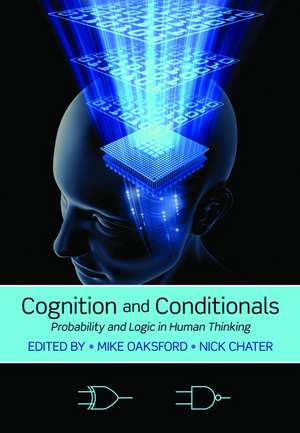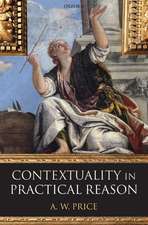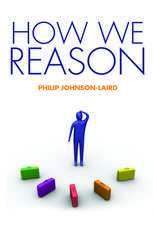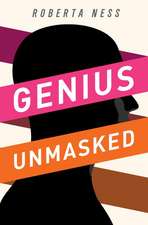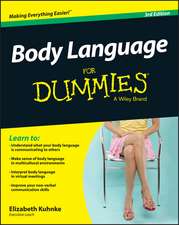Cognition and Conditionals: Probability and Logic in Human Thinking
Editat de Mike Oaksford, Nick Chateren Limba Engleză Hardback – 22 apr 2010
Preț: 493.19 lei
Preț vechi: 712.76 lei
-31% Nou
Puncte Express: 740
Preț estimativ în valută:
94.40€ • 102.58$ • 79.35£
94.40€ • 102.58$ • 79.35£
Carte tipărită la comandă
Livrare economică 10-16 aprilie
Preluare comenzi: 021 569.72.76
Specificații
ISBN-13: 9780199233298
ISBN-10: 0199233292
Pagini: 420
Ilustrații: 1
Dimensiuni: 176 x 253 x 30 mm
Greutate: 0.9 kg
Editura: OUP OXFORD
Colecția OUP Oxford
Locul publicării:Oxford, United Kingdom
ISBN-10: 0199233292
Pagini: 420
Ilustrații: 1
Dimensiuni: 176 x 253 x 30 mm
Greutate: 0.9 kg
Editura: OUP OXFORD
Colecția OUP Oxford
Locul publicării:Oxford, United Kingdom
Notă biografică
Mike Oaksford is Professor of Psychology and Head of School at Birkbeck College London. He was a PhD student and subsequently a Research Fellow at the Centre for Cognitive Science, University of Edinburgh. He was then a lecturer at the University of Wales, Bangor, and a senior lecturer at the University of Warwick, before moving to Cardiff University in 1996 as Professor of Experimental Psychology, a post he held until 2005 when he moved to Birkbeck College, University of London. He has authored or edited seven books (four with OUP) and over 100 articles. His research interests are in the area of human reasoning and argumentation. In particular, with Nick Chater and Ulrike Hahn, he has been developing a Bayesian probabilistic approach to classical deductive reasoning tasks and to the classical fallacies of informal argumentation. He also studies the way the emotions interact with reasoning and decision making processes.Nick Chater is Professor of Cognitive and Decision Sciences at University College London. He was a PhD student at the Centre for Cognitive Science, University of Edinburgh. He was then a lecturer at University of College London, before moving to lectureships at Edinburgh and then at Oxford. In 1996 he moved to Warwick University as Professor of Psychology, a post he held until 2005 when he moved back to University College London. He has authored or edited seven books (three with OUP) and over one hundred and fifty scientific publications in psychology, philosophy, psycholinguistics, and cognitive science. His research explores formal models of inference, choice, and language.
